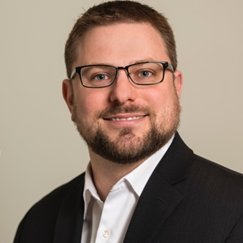
Driving with arthritis pain: Stay comfortable — and safe — behind the wheel

Daily cup of coffee may prevent afib recurrence

Gene-editing therapy lowers harmful blood fats in early study

What is EMDR therapy, and who can it help?

GLP-1 drugs versus bariatric surgery for treating obesity

Two dumbbells, three exercises, and 10 minutes

Easing the emotional burden of IBS

Modify your push-ups to meet your fitness level

What is long QT syndrome?

Stroke survivors may benefit from very low LDL levels

Christopher D. Anderson, MD, MSc
Contributor
Dr. Chris Anderson is chief of the division of stroke and cerebrovascular diseases at Brigham and Women’s Hospital (BWH), director of the BWH Comprehensive Stroke Center, and an associate professor of neurology at Harvard Medical School. As a clinician-scientist, Dr. Anderson is a computational biologist with research expertise in statistical genetics, medical informatics, and machine learning, and a clinical focus on cerebrovascular disease, brain health, and neurocritical care. He has devoted his career to developing and leveraging computational methods to define biological mechanisms involved in cerebrovascular disease, with the ultimate goal of driving improvements in care through identification of novel treatment targets, and the design and implementation of precision strategies to guide primary and secondary prevention.
Dr. Anderson started at BWH in 2006 as a junior neurology resident. He graduated residency in 2009, after which he performed a postdoctoral fellowship in the MGH Center for Genomic Medicine before completing his neurocritical care fellowship at BWH/MGH in 2012. Since that time, he has led a multidisciplinary translational and clinical research group with Dr. Jonathan Rosand at MGH and at the Broad Institute. As a strong advocate for team-based science, he has cultivated extensive collaborations across the International Stroke Genetics Consortium, the McCance Center for Brain Health, and the Broad Institute, where he is an associate member in the Program in Medical and Population Genetics.
Posts by Christopher D. Anderson, MD, MSc

Driving with arthritis pain: Stay comfortable — and safe — behind the wheel

Daily cup of coffee may prevent afib recurrence

Gene-editing therapy lowers harmful blood fats in early study

What is EMDR therapy, and who can it help?

GLP-1 drugs versus bariatric surgery for treating obesity

Two dumbbells, three exercises, and 10 minutes

Easing the emotional burden of IBS

Modify your push-ups to meet your fitness level

What is long QT syndrome?

Stroke survivors may benefit from very low LDL levels



